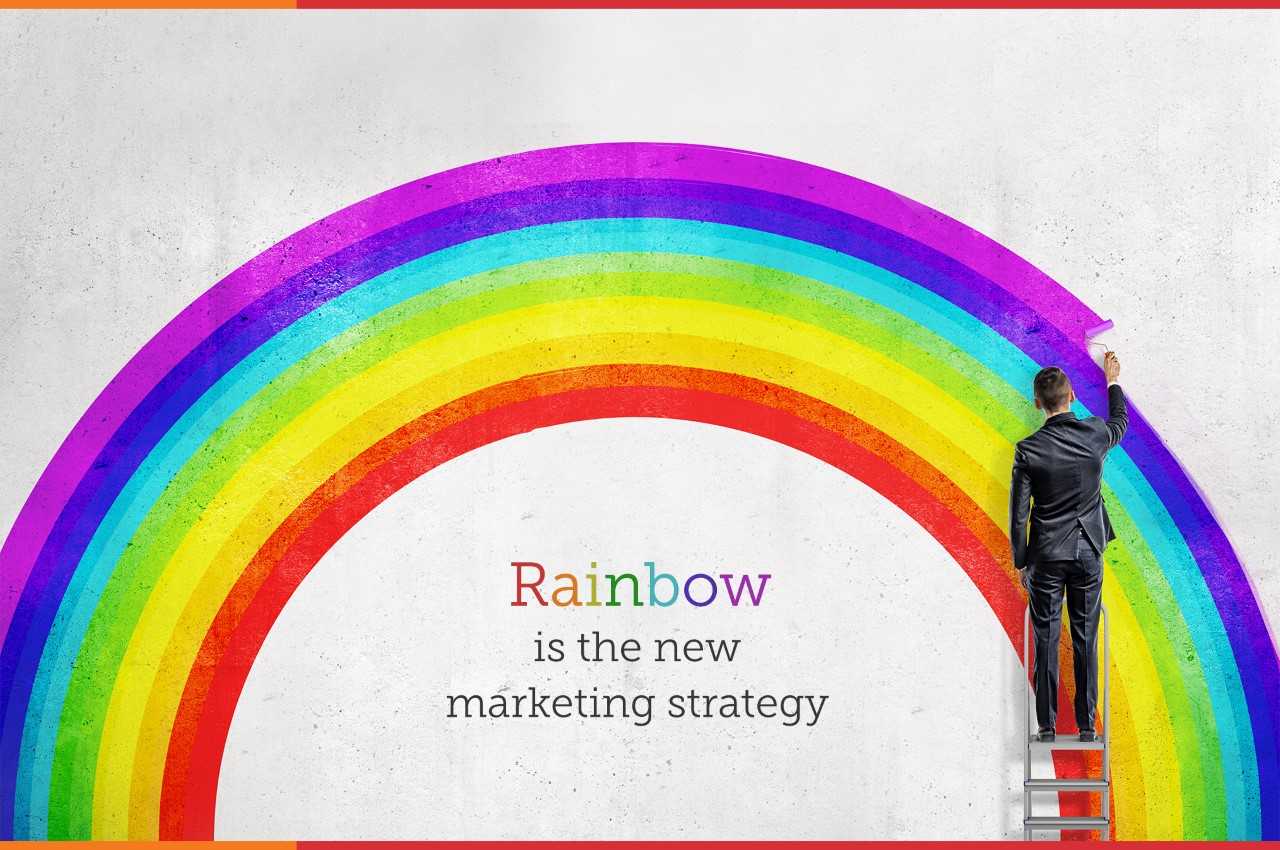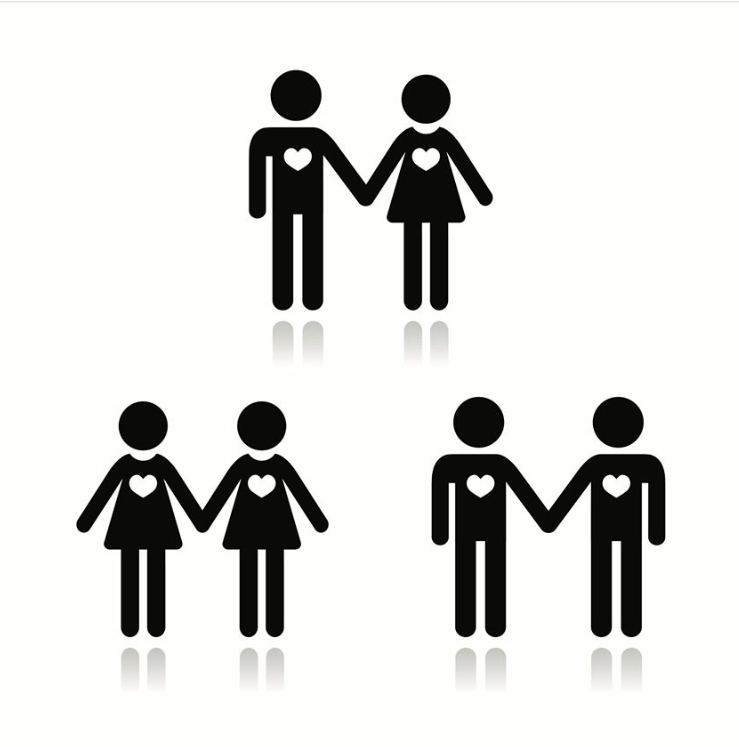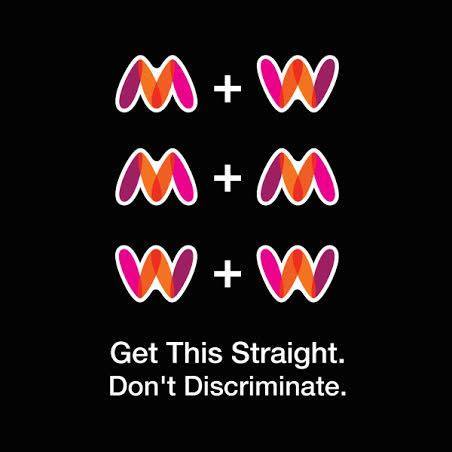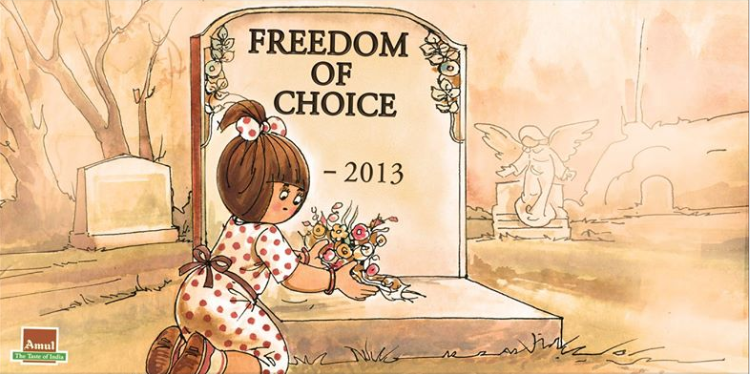Brands that have done more than donning the rainbow colours

Deep into the age of personalisation, it comes as no surprise when brands not only reflect contemporary social phenomena but also take a stand on these issues. One such debate that has affected every right-thinking individual is the shifting legal take on Section 377 of the Indian Penal Code. Instituted in 1861 during British rule, this criminalises any sexual activities ‘against the order of nature’. The reaction of the Indian legal system to this ancient and discriminatory law has been inconsistent. Where 2009 saw decriminalisation of homosexuality by the Delhi High Court, 2013 saw a regression with the Supreme Court overturning the judgment, opining that any changes in Section 377 should be a matter for the Parliament rather than the judiciary. Sanity has finally prevailed. 2018 has become the year India provided legal backing to the social rights of the LGBTQ+ community.
And what has been the response from brands?
Most of them have adorned themselves with rainbow colours. It is as the Group Chairman, and CCO of Lintas Amer Jaleel said, “Activism is active today; everyone wants to participate in it because activists are people who are different, and everyone wants to be different.”
And that’s the tricky thing with brands taking a stand. How many of them actively pursue these progressive beliefs outside the confines of brand marketing?
Let’s take a look at some brands that have stuck with the cause of LGBTQ+ equality despite the legal flip-flops in India.
1. Godrej
Godrej’s efforts at inclusivity extend to the creation of the Godrej India Cultural Lab, headed by Parmesh Shahani. This LGBTQ+ friendly space organises collaborative projects and educational initiatives. It works to foster an environment that doesn’t discriminate on the basis of any aspect of an individual’s identity.
The Group organised a curtain raiser at the Kashish Mumbai International Queer Film Festival in 2013. In addition, Parmeshwar Godrej’s NGO ‘Heroes Project’ donated Rs 5 lakh to the festival, thereby financing a day’s expense. Raising the stakes and its voice for the same, Godrej sponsored the festival in 2017.
2. IBM
Ever since 1984, IBM has made a conscious effort at ensuring workplace equality; it included sexual orientation as one of the parameters in its non-discrimination policy. In 1995, it created a task force, now known as the Global LGBT Council, which undertook the responsibility of fostering a safe work environment for all its employees.
To extend the same initiative to India, IBM and Interweave Consulting created a group of 30 like-minded companies to lend their voice for the inclusion of the LGBTQ+ community and empowering them.
3. Tata
The Tata group, known for its social empowerment initiatives, has undertaken a number of steps to actively provide equal opportunities to diverse groups. Tata Sons began a movement called Tata LEAD aimed at the inclusion of diverse genders, ethnicities, sexual orientations, and the differently abled, amongst others, in 2014.
Yet another company from the Tata group, Tata Steel, intends to have a fourth of its workers from diverse groups and ensure that 5% of them are from the LGBTQ+ community.
4. Lalit Hotels
The real challenge that brands faced in their support for the LGBTQ+ community became evident in 2013. Amongst the few brands that displayed passionate support for the cause was Lalit Hotels. In a bid to make its stand clear, the group posted the following image on its Facebook page with the accompanying caption, “At The Lalit, we have always and will continue to welcome the LGBT community.”

(Source)
Come 2018; the group celebrated the repeal of Section 377 with a free-spirited, rainbow-clad dance in the Delhi branch. Not surprisingly, one of the petitioners in the Supreme Court was Keshav Suri, the owner of the hotel group.
5. Myntra
Yet another company that has remained consistent in its support for the cause is Myntra. The brand created quite a stir in 2015 with its ad for ethnic clothing company Anouk. It featured a lesbian couple getting ready to meet one of their parents. The video garnered over 4 million views.
This wasn’t the first time the brand displayed its solidarity with the LGBTQ+ community. The repeal of the ruling in 2013 saw the brand release the following message.

(Source)
6. Amul
As a brand, Amul is not only known for its milk products; it’s also been synonymous with its innovative and bold topical marketing. The company voiced its protest against the repeal of the 2009 judgement in 2013 through the following image.

(Source)
The bottom line
Scatter salutes the brands that continue to stick their necks out despite all odds, legal or otherwise. However, 98% of the corporate community still doesn’t have a clear policy regarding discrimination on the basis of gender or sexual orientation. Moreover, many brands with a pan-India influence continue to remain ignorant about gender and sexual identity.
Given their constant online presence and sometimes cult-like following, it is time brands became far more socially aware and responsible towards their consumers.
